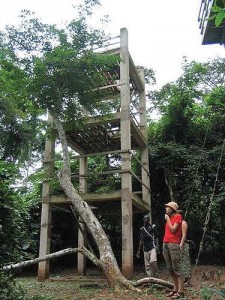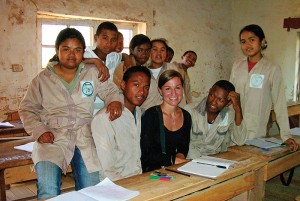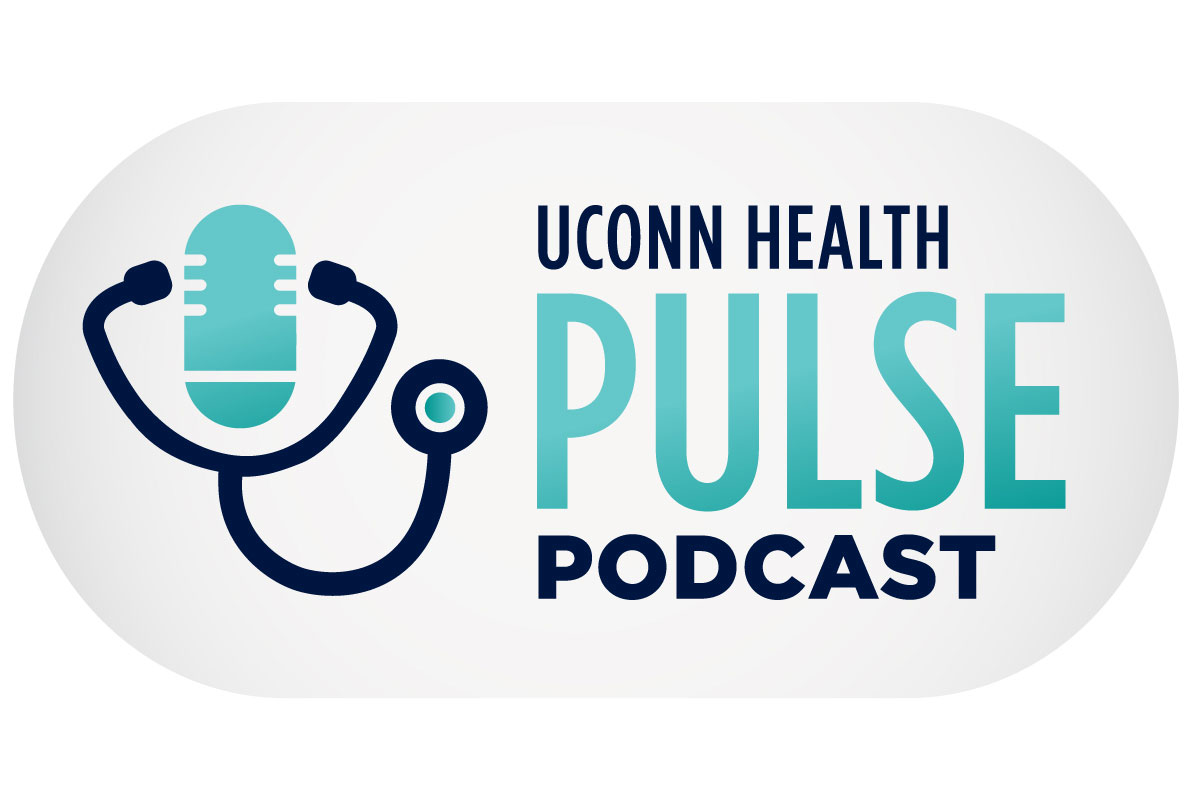
The job requirements are not for the fainthearted. Applicants must be willing to leave behind family, friends, job security, live in a remote corner of the world, make do without running water or electricity, overcome language and cultural barriers, and even face the possibility of being in harm’s way.
It has been described as the “toughest job you’ll ever love” and 195,000 Americans have answered the call to serve as Peace Corps volunteers since the program was launched in 1961 by President John F. Kennedy. Among those who have served are 263 UConn alumni as well as dozens of University faculty and staff, many of whom were assigned as teachers and agriculture workers.
The Peace Corps now assigns almost 25 percent of its more than 8,000 volunteers to work on health-related issues, including monitoring the well-being of their own group of volunteers.
And it will come as no surprise that Peace Corps volunteers often run into unexpected challenges that test both their mettle and persistence to find solutions to those obstacles.
Mark Tapper ’82 (CLAS) served from 1982 to 1984 just south of the Sahara Desert in the Islamic Republic of Mauritania, where temperatures average 100 degrees Fahrenheit. Assigned to work with rice farmers on improving harvests and reducing soil erosion through irrigation, he quickly came to realize the challenges of the job.
“In the first six months I had 13 different projects fail,” he says. “I had to be medically evacuated twice. I had a long list of tropical illnesses and lost about 80 pounds.”
Tapper, now a psychiatric nurse in Vermont, discovered that the villagers needed wood for cooking. In response, he initiated projects to plant trees and vegetable gardens and devised a slow-burning wood-conserving stove, which he showed villagers how to build.
Brendan Williams ’01 (BUS) was stationed from 2002 to 2005 in a rural village in southwest Kenya as part of a micro-finance project. Feuding and questionable bookkeeping by local authorities made the initiative difficult. Like Tapper, he found it necessary to adapt his assignment to the needs of the region.
Williams knew that clean drinking water was a critical issue in Africa, where contaminated water can lead to severe illness and death, so he worked with schools and medical facilities to install tanks that captured rainfall runoff. He also became an HIV/AIDS counselor and helped sustenance farmers get basic supplies, such as seeds for planting.
“I stayed for three years and found the whole experience really rewarding,” says Williams, who today is an accountant in Oregon.
Other volunteers have found themselves adjusting to similarly unexpected circumstances. Kelly Searle ’05 (CANR) was in the East African coastal nation of Mozambique teaching high school biology just three months after learning Portuguese, the nation’s primary language. Then, a teacher shortage left her as the only qualified biology instructor in the school with responsibility as the head of the science department.
“I learned to work with different people, to cross language and cultural barriers and achieve a common goal together,” says Searle, now a researcher in ophthalmology at Duke University Medical Center.

For Karen Sherk ’00 (CLAS), the Peace Corps changed the direction of her life. She was sent to Madagascar, the island nation off the east coast of Africa, to teach middle school, high school and adult English classes and where she hosted an English-language radio show.
She asked for a third-year extension, with plans to become a Peace Corps Volunteer Leader for the region. But Sherk never fulfilled that role. When a disputed election created a politically unstable environment, all Peace Corps volunteers were evacuated.
Sherk had dreamed of eventually becoming a professor of English literature.
“That would have been a beautiful career, but after the Peace Corps I felt compelled to address the more immediate needs of poverty and health,” says Sherk. Today, she is a senior program officer for Management Sciences for Health, an international public-health non-profit organization based in Cambridge, Mass.
Service in the Peace Corps also provides lasting impressions of the role the United States plays on the world stage, as it did for U.S. Senator Christopher J. Dodd of Connecticut, who spent two years (1966-68) as a volunteer in the rural village of Moncion in the Dominican Republic.
“My service gave me not only an understanding of the leadership potential of the United States when we engage with the international community on every level, but also respect for the multitude of good works that average Americans perform every day when they commit themselves to service, both at home and abroad,” Dodd says. “Now, more than ever, we must remember why this program is so important: Because the Peace Corps and its volunteers not only help those in need, but they also help build bridges of mutual understanding and trust, which in turn strengthen America’s national security.”
Penny Newbury ’80 (CLAS), ’83 M.A. had a unique life-changing Peace Corps experience. At the age of 40, she was serving as executive director of a social service agency in northeastern Connecticut, waiting for her fiancé to retire and join her as a Peace Corps volunteer in Kenya.
Her plans were thwarted when a terrorist bombing of the American Embassy in Kenya’s capital of Nairobi forced the Peace Corps to suspend work in that country and, around the same time her fiancé died in a hunting accident. Six months later Newbury accepted a Peace Corps assignment in Paraguay, which was emerging from a long history of totalitarianism.
Newbury, one of several volunteers sent to impart principles of participatory democracy in a number of municipalities, went to Santiago, a southern border town of about 8,000 people. Working with the mayor, council members, and neighborhood commissions, she offered insights into how government can help people and how municipal employees have a responsibility to serve their community.
Meanwhile, as Paraguay struggled to issue its national budget, Newbury helped Santiago generate its financial statements using computers.
Word of her efforts reached higher government officials, who asked Newbury to continue her work with municipalities in the country’s northern regions for another year.
Newbury believes she had the best of both worlds as an older volunteer. “I try to tell anyone who will listen about my experience and the incredible benefits of being a volunteer,” she says.
With its new motto: “Life is calling. How far will you go?” Peace Corps service does not always end when volunteers return home.
Chris Starace ’95 (CLAS), for instance, served two years in the Republic of Benin in West Africa, located between Nigeria and Togo, working as a teacher.
Today, he teaches high school French and Spanish in Ossining, N.Y., and also runs a Web site called Friends of Benin that is devoted to “keeping the Peace Corps/Benin experience alive.”
In addition to writing a memoir of his service in 2004, Starace returned to Africa to make a documentary film, “Discovering Benin,” which is available through his other Web site, Fon is Fun. Fon is the native language of the region.
“The Peace Corps helped me learn how to work in a diverse community,” says Starace. “In many ways it has defined who I am today.”

